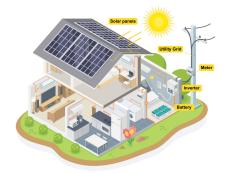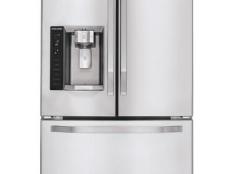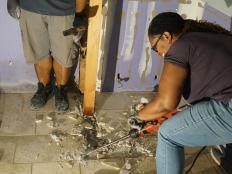So You Want to Start a Renovation - How to Shop for a Contractor
It amazes me, after doing my television show all these years, that I’m still seeing homeowners making the same knucklehead mistakes over and over. The big one — the one that starts a chain of events ending in disappointment and frustration — is the notion that they want the renovation done “fast” and they want it done “cheap." And let’s face it:, in the renovation game, fast and cheap add up to just one thing — crap.
Before you start flipping through the Yellow Pages and calling every contractor in the book, let’s get your expectations on the right planet. You should expect that in this day and age, skilled contractors are in high demand: good contractors are very, very busy.
This means when you do start phoning contractors, don’t be surprised that they don’t immediately answer their phones — they are probably standing on a ladder somewhere with their hands full when you call. Don’t take it personally or assume they are not interested in talking to you, but contractors won’t answer their cell phones every time it rings. Constant interruptions slow down a jobsite. For this reason alone, most contractors wait until they are away from the jobsite before they return your calls.
Depending on the volume of messages they get, it can take at least a few days to get back to you because your average licensed tradesperson is in business as an owner-operator. This means that they do all the work themselves and also do their own bookings. A slow response time is not necessarily a bad sign: it shows that they are in demand and it is a pretty good indicator that they are going to be well worth the wait.
It's also important to understand that good contractors are booked at least two to four months in advance. If you feel you can’t wait, remember this: Bad contractors are always available right away — because they are not in demand, or worse, because they are more than willing to bump their current renovation in progress to get started on yours. Odds are, that situation will come back to haunt you when, halfway into your renovation, the same contractor will bump you in favor of his latest customer.
If a contractor says he will "try to fit you in as soon as he can" and to "please be patient," take that as a sign that he isn't going to take shortcuts on his current project just to get to yours that much sooner. High-quality work takes time. You also don’t want that same contractor to turn around and rush your job just to get to his next one.
Let’s talk about the other part of the consumer equation: cheap. No one wants to spend more than he has to on a renovation, but as the saying goes, “You get what you pay for."
How much is the right amount? That requires some work on your part, because it means getting as many quotes as possible. In the end, you may get a few extremely high quotes and a few extremely low quotes, and most likely you will get the majority of quotes that fall around the same price. Chances are, one of those middle quotes will be the right price.
The higher quotes sometimes reflect the skill level of the contractor or the price that the market demands for certain contractors who have a reputation for outstanding-quality work. Extremely low quotes often mean that the contractor doesn’t have the experience to properly quote the job, let alone know what it will take to do the job properly, or that he knows how to take shortcuts with your home in order to undercut the legitimate competitors.
So as you start planning your project, be prepared to wait for the right contractor and understand that there are ways to find the right price for the renovation you want. Make It Right?.






















